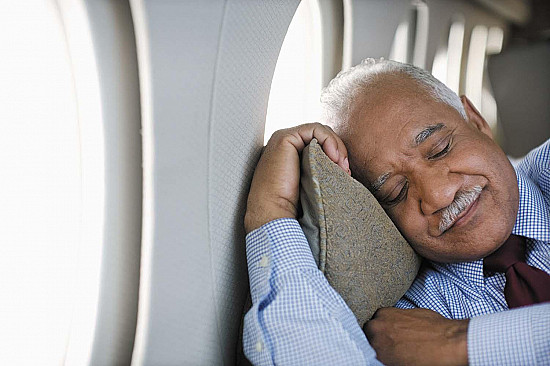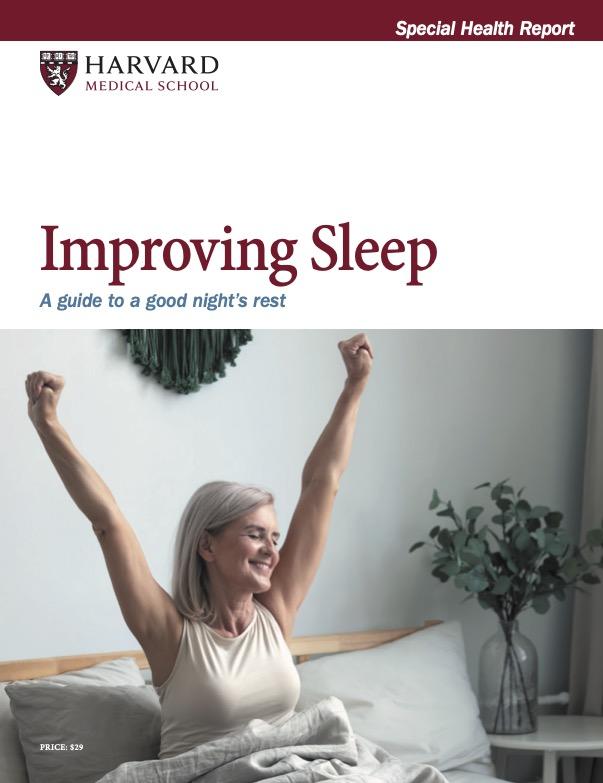Supplementing your sleep
Over-the-counter remedies promise a better night's rest, but they may not be the best way to improve your shut-eye.

You've been having trouble sleeping lately. It seems like every morning you start your day feeling groggy and drained. A friend of yours swears by an herbal sleep supplement she found at the drugstore. You wonder if you should try one.
There is a wide selection of over-the-counter sleep supplements to choose from. Some of the most common are cannabidiol (CBD), synthetic melatonin, valerian, and chamomile. But do they work, and are they good options to solve your sleep struggles?
"There is limited evidence for some of these supplements, and evidence against the use of others," says Dr. Suzanne Bertisch, clinical director of Behavioral Sleep Medicine at Harvard-affiliated Brigham and Women's Hospital. "Some have been looked at for sleep generally and some for insomnia" — that is, difficulty getting to sleep and staying asleep.
Over all, she says, there are better ways to improve sleep quality than by taking a supplement.
Are supplements safe?While evidence that supplements can help improve sleep is limited, cannabidiol, valerian, synthetic melatonin, and chamomile are generally regarded as safe, says Dr. Suzanne Bertisch, clinical director of Behavioral Sleep Medicine at Brigham and Women's Hospital. But there is still room for caution. Supplements aren't regulated by the FDA, so quality and safety may vary. Look for supplements that display a seal from U.S. Pharmacopeia, ConsumerLab.com, or NSF International. These independent organizations can give you some assurance about quality. Some supplements are not advised for people who have certain medical conditions or are pregnant. They also may interact with other medications you are taking. Talk to your doctor before you try one. |
Examining the evidence
Research into sleep supplements is a mixed bag, but most studies show only a small benefit or no benefit at all, says Dr. Bertisch. Here's an overview of the evidence related to common supplements.
CBD. CBD is an active compound derived from the marijuana or hemp plant. It does not produce a high, but it may make the user feel calm or mellow. "There are some recent preliminary studies that suggest CBD may improve sleep," says Dr. Bertisch. Several larger randomized clinical trials are now under way and are expected to provide more definitive evidence, she says.
Synthetic melatonin. Melatonin is a hormone produced at night by your brain. It plays an important role in regulating sleep. A synthetic version of this natural hormone is often used as a sleep supplement. "Several randomized clinical trials have shown that melatonin is not effective for insomnia," says Dr. Bertisch. However, there is evidence that melatonin is helpful for circadian rhythm disorders, such as jet lag, she says.
Valerian. This supplement is made from either the roots or stems of a flowering plant native to Europe and Asia. It produces a mild sedating effect and has been used as a sleep aid as far back as ancient Greece and Rome. While valerian is probably the most well-studied dietary supplement for sleep, evidence backing its use for this purpose is weak, says Dr. Bertisch. "The data show no benefits or very modest benefits, which likely fall short of clinically meaningful improvement for insomnia," she says.
Chamomile. This herbal remedy is derived from a flower in the daisy family. It's generally viewed as safe and mild, but it causes allergic reactions in some individuals. "People have been using chamomile to promote better sleep for ages, but there are few studies supporting this use," says Dr. Bertisch.
How to sleep more soundly
If supplements aren't the best way to improve your sleep or to help with insomnia, what should you do to solve your sleep problems?
The most effective options involve changing your daily routines and habits, says Dr. Bertisch. "As humans, we have evolved to sleep. So, our brains are usually capable of being retrained to go to sleep," she says. "There is no need to ingest something."
Your doctor or a sleep specialist can help you find the best solution for your unique problem. "Sleep problems can be very diverse," says Dr. Bertisch.
Strategies that might help you get some relief include the following:
- Treat the underlying physical or mental health condition like arthritis pain or anxiety that may interfere with sleep.
- Engage in healthy lifestyle activities, such as exercising regularly.
- Practice good sleep habits, such as waking up at the same time each day and keeping your bedroom dark, quiet, and cool.
- Avoid caffeine late in the day, and avoid alcohol close to bedtime.
- Turn off electronic devices in the evening.
If these steps aren't enough, your doctor may want to try other strategies.
Image: © microgen/Getty Images
About the Author

Kelly Bilodeau, Former Executive Editor, Harvard Women's Health Watch
Disclaimer:
As a service to our readers, Harvard Health Publishing provides access to our library of archived content. Please note the date of last review or update on all articles.
No content on this site, regardless of date, should ever be used as a substitute for direct medical advice from your doctor or other qualified clinician.
















